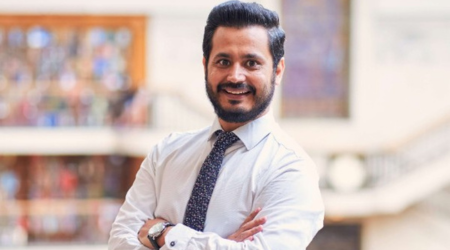
Rotary Australia World Community Service (RAWCS) is a not-for-profit organisation aiding disadvantaged communities globally. Mahir Momand, the new Chief Executive Officer, shared insights into his career, challenges and plans.
When did you join RAWCS and what was your major motive to accept this job offer?
I joined RAWCS recently, taking on the role of CEO to steer the organisation’s strategic and policy direction. My entire career, spanning over 20 years, has been dedicated to the not-for-profit and development sector, with prior experiences at organisations like the United Nations and the World Bank. Prior to joining RAWCS, I spent two years in a commercial banking role, but eventually sought a position where my values resonated more. With the assistance of Lois at NGO Recruitment, I found this role and gladly accepted it.
My motivation to work in the not-for-profit sector stems from childhood experiences living as a refugee 3 times in my life. International NGOs not only provided for our basic needs but also helped with my formal education. Now, at RAWCS, our projects align perfectly with my values, working with communities facing challenges similar to those of my childhood.
What kind of people are you looking for in your team, and what qualities and skill sets are needed in the NFP sector and at RAWCS in particular?
We look for people passionate about their work in the not-for-profit sector, driven by a genuine desire to assist others. However, passion alone is not sufficient; individuals must also possess intelligence and skills relevant to their roles.
In the not-for-profit sector, individuals must be prepared to bring their skills and continually upskill. I’ve found that applying commercial thinking to achieve social outcomes enhances productivity and encourages innovative, out-of-the-box thinking. In essence, bringing passion is essential, but prospective team members should also come prepared with the necessary skills to navigate the challenges and make a meaningful impact.
When you came to Australia, what kind of challenges did you have, and what was helping you along the way?
Approximately 13 years ago, due to persecution for my human rights and development work, I had to flee Afghanistan and eventually seek refuge in Australia. This transition presented considerable challenges, not only because I had to leave my entire life behind but also because I was diagnosed with post-traumatic stress disorder (PTSD) at the time. Adjusting to the different work culture in Australia added another layer of complexity.
The initial three years in Australia were intense, marked by resilience and a deep appreciation for life. Having faced life-threatening situations back in Afghanistan, I developed enormous resilience, which continues to propel me forward every day. Surviving near-death experiences and appreciating the gift of life served as powerful motivators during my early years in Australia, allowing me to overcome challenges and contribute positively to my new environment.
What recommendations do you have for anyone wishing to work at a not-for-profit organisation?
The not-for-profit sector has historically been viewed as a ‘soft’ sector, emphasising good intentions. However, to succeed in NGOs, individuals must bring a high level of professionalism and skills. Anyone interested to join the NFP sector should bring both passion and skills. While goodwill is crucial, success in the sector requires dedication, hard work, and a commitment to ongoing personal development. Preparation and a proactive approach contribute significantly to making a meaningful impact in this dynamic and rewarding field.
What are your professional priorities and plans for 2024?
Upon taking on the role, one of my primary objectives was, in collaboration with the board, to formulate a new strategic plan for RAWCS covering the next three years. This involved a collaborative three-day strategy workshop, and we are set to finalise the plan in April. My aim is to ensure a shared understanding among the Board and the broader team regarding our goals and objectives.
I’m also focused on promoting an agenda to attract younger individuals to become Rotarians, thereby securing the future development of RAWCS and its projects. Collaborating with sister organisations and initiating joint projects is another significant aspect of my plans for 2024. Moreover, I aim to modernise RAWCS by introducing new systems, governance models, and innovative thinking. Despite its successful history since 1966, our new strategic plan focuses, amongst other areas, on modernising RAWCS to align with contemporary standards. In essence, these initiatives will be my focus for the next 12 months.
To support RAWCS and to find out more about their humanitarian projects, please visit their website.
